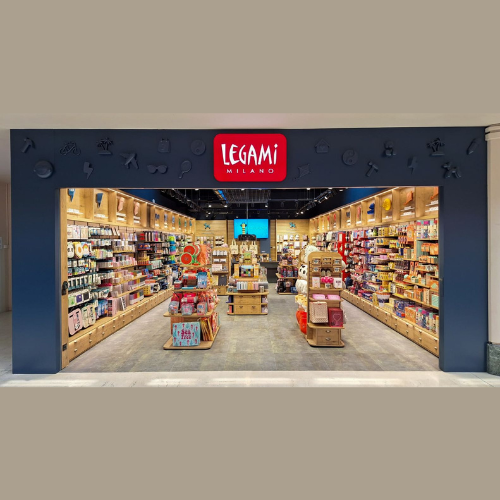The GPSR requires that all non-food consumer products sold in EU markets via any sales channels are deemed to be safe and it establishes specific obligations for businesses – however, the new rules have not been widely publicised and many small business owners are understandably muddled by the demands, with social media feeds reflecting the dazed and confused feeling.
The new legislation will cover any business from the UK exporting products to the EU or Northern Ireland from Friday 13 December, apart from certain drugs, medical devices, food and beverages which are subject to separate legislation – the EU page for GPSR is here with a downloadable fact sheet here.
Mat O’Marah from Dean Morris Cards has been trying to get his head around what it will mean for his business. “You need to be aware of these new regulations and follow the requirements laid out within them if you are the manufacturer of the goods – if you import products and sell them under your own name or brand you are considered the manufacturer.

“The legislation contains two key rules that we must now follow as a manufacturer, firstly we must have an appointed representative/responsible person based within the EU, and products must comply with new safety labelling requirements.”
The legislation is mostly related to product safety in regard to recalls and safety notices, with the manufacturer having responsibility for actions such as conducting comprehensive risk assessments for each product; ensuring products are designed and manufactured according to the latest safety standards; maintaining up-to-date technical documentation and a Declaration Of Conformity; implementing robust testing procedures; ensuring product traceability throughout the supply chain; providing clear labelling and product information; and staying informed about regulatory updates.
Admitting this list “sounds scary” Mat said there are only two key aspects to focus on for most businesses at this time – having an appointed representative or responsible person, and packaging and labelling.
Anyone without their own offices in the EU for a point of contact must now have an appointed representative (AR) based within the European Union area – this includes for sales on online marketplaces such as Etsy, Amazon and eBay.
Mat advises that, if selling direct to consumers through these sites the marketplace can act as the AR for that transaction but warned: “Their stance on this isn’t clear at the moment, and only covers retail orders.”
The representative will ask for a detailed list of all a publisher’s products, so they can fulfil their duties, and all ARs must be registered on the Safety Business Gateway (SBG) communications platform for issuing product safety notices and recall alerts across the EU.
Many companies are offering AR services with prices varying wildly as some charge by the number of SKUs, others by how many Harmonised Standard (HS) codes the products fall under, plus there can be both set-up charges along with monthly or annual fees, as well as additional charges for work relating to safety and recall notices – current costs can range from hundreds of pounds to the thousands.
On packaging and labelling, Mat said the legislation is “quite vague” with no definitive answers to questions affecting the greetings industry, but he pointed out that the mention of importer doesn’t mean the distributor or shop, in most cases it would be the appointed representative, or the online marketplace in the case of retail sales.
All products entering the EU and Northern Ireland must be labelled with the manufacturer’s name and address; the AR’s name, address and contact email; and a product code – QR codes are not currently allowed for contact or safety info – but the legislation does state: “That information shall be placed on the product or, where that is not possible, on its packaging or in a document accompanying the product.”
Safety or assembly instructions for products such as 3D slot-together cards may need to be provided in the language of the state where they’re sold – that’s up to individual states so needs to be checked. Mat’s advice is to use pictures or diagrams where possible to avoid translation costs but there’s no GPSR guidance for what to do if the product itself is too small to be labelled and isn’t in any packaging.
As the regulation kicks in, customs officers are expected to initially be making the checks on products at borders, so Mat said: “Make it as easy as possible for customs to see you are aware of the legislation and have taken steps to follow it by.
“Ensure the outside of the packaging is clearly marked with the labelling requirements – have the manufacturer and AR contact details on a clearly-marked EU General Product Safety Regulation Contacts label on the outside of the box, and update invoices, despatch notes, and packing slips with this information.”
For greeting cards, have the manufacturer and AR details printed on the card itself, or on a small sticker on any cello bag although the cost of stickering every product in an order will make the supply financially unviable, so Mat said: “It may be worth waiting for more guidance on the use of QR codes before updating all the artwork files for reprints.”
On small items such as pens and badges, Mat said Dean Morris Cards has been told “we need to look at this as a common sense approach and monitor the situation after the legislation comes into force – if the documentation with the order is enough then brilliant, but what if more is required”?
Mat has come up what he admits is a “bit of a fudge” for their business, but it does follow the legislation directive. Dean Morris is having A7 flyers printed with the manufacturer and AR contact details, with a pack placed in the order and instructions on the invoice and documentation to the shop and distributor explaining a flyer is to be included with each sale.
“This is a huge headache and additional cost on companies,” Mat said, “and one that export organisations are monitoring and discussions are ongoing with EU officials as regards implementation.
“The most important tasks are the AR appointment and starting to work on labelling of order documents and delivery packaging. Beyond that we need to monitor the situation, not spend huge amounts unnecessarily and share experiences through our associations and contacts.”
Some information is available to download from the GCA blog including Mat’s personal understanding of the new rules, having spent several months looking into it with the help of the Department Of Business & Trade Export Academy, Global Trade Department and Authorised Rep Compliance, although he does emphasise that people should seek their own legal advice if they are concerned.
























